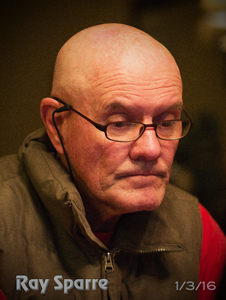
Insightful Musings on theScriptures
by
Raymond P. Sparre
Northwest University class of '67
Greetings, dear ones.
 Becki just ran off to church with Thano and the two boys. I am still not in great shape surrounding this cold/congestion thing that’s been hammering me—so opted to stay home. That partly accounts for my not punching out a devotional yesterday. The day actually developed into a fiasco. Not sure if I’ll also bail from this afternoon’s Gospel Sing. Probably should.
Becki just ran off to church with Thano and the two boys. I am still not in great shape surrounding this cold/congestion thing that’s been hammering me—so opted to stay home. That partly accounts for my not punching out a devotional yesterday. The day actually developed into a fiasco. Not sure if I’ll also bail from this afternoon’s Gospel Sing. Probably should.
My Friday work on that project went reasonably well—even though I felt crummy. The weather was perfect. I mentioned I could probably stick on a photo. I’ll attach one now. The next steps will be to install the perlins, facias, then the metal roofing. I’ve assigned some pieces of polycarbonate roofing in the mix to offer skylighting.
Have a great day in the Lord.
Love, Dad/Ray.
Is there a theological/philosophical question any more persistent throughout human history than this one? Another common spin of the same question is, “How could a sovereign God of love allow so much unfair human suffering?” Of course, the heart-level motive behind that kind of questioning is the attempt to gather support for ignoring God—for avoiding any compelling reason to be accountable to Him.
Personally, I can’t come up with an answer to that question any better than Isaiah 55:8-9: “’For my thoughts are not your thoughts, neither are your ways my ways,’ declares the Lord. ‘As the heavens are higher than the earth, so are my ways higher than your ways and my thoughts than your thoughts.’” In so many words, God is saying to us, “Get it straight, little humans—by comparison with your thinking and lifestyles, I am mysterious—and I intend to remain mysterious—until I choose to increase your comprehension. So, until then, you’re just going to have to deal with it!”
Oh—the absurd and ugly judgments that the arrogant most low make toward the Most High!—as flowing from their own puny opinions and capacities! David goes on to articulate that mindset from many angles. For example, “In his pride the wicked does not seek him; in all his thoughts there is no room for God” (Psalm 10:4). I notice three times in this psalm that David cites the self-talk of this arrogant earthling:
- “He says to himself, ‘Nothing will shake me; I’ll always be happy and never have trouble’” (v.6).
- “He says to himself, ‘God has forgotten; he covers his face and never sees’” (v.11).
- “Why does the wicked man revile God? Why does he say to himself, ‘He won’t call me to account’” (v. 13).
I reason there is no form of speech more influential in the shaping of our lives, attitudes, beliefs, and behavior than self-talk—the kind of stuff we tell ourselves—either intentionally or subliminally—either true or false. If this is valid reasoning, can we come up with any reason why it would be a good idea to tell ourselves what God tells us? Reading the Word, memorizing the Word, meditating on the Word—all very positive exercises. “I have hidden your word in my heart that I might not sin against you” (Psalm 119:11)—because if I don’t, sin is automatic
No, this kind of transformational exercise does not entirely eliminate the mystery that shrouds the LORD, but it goes a long way toward reducing it—and making us compliant seeker/followers rather than resistant arrogant knuckleheads.
Proverbs 10:23
“But his (the blessed man’s) delight is in the law of the LORD, and on his law he meditates day and night.”
Psalm 1:2.